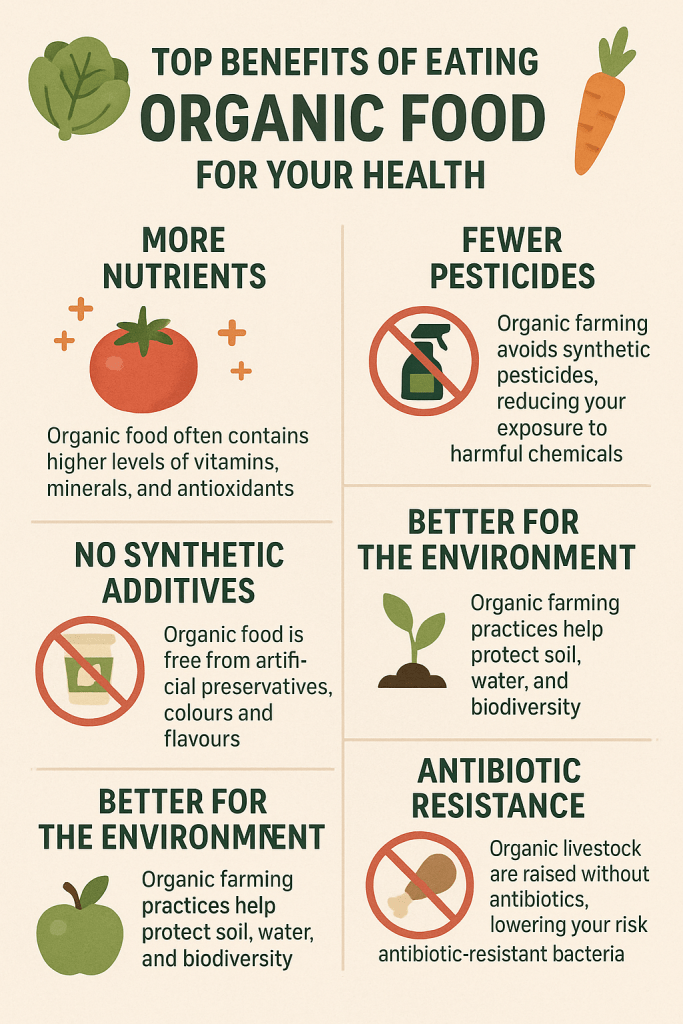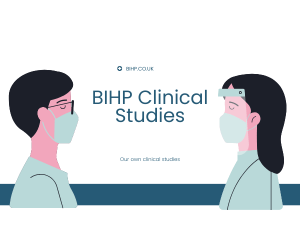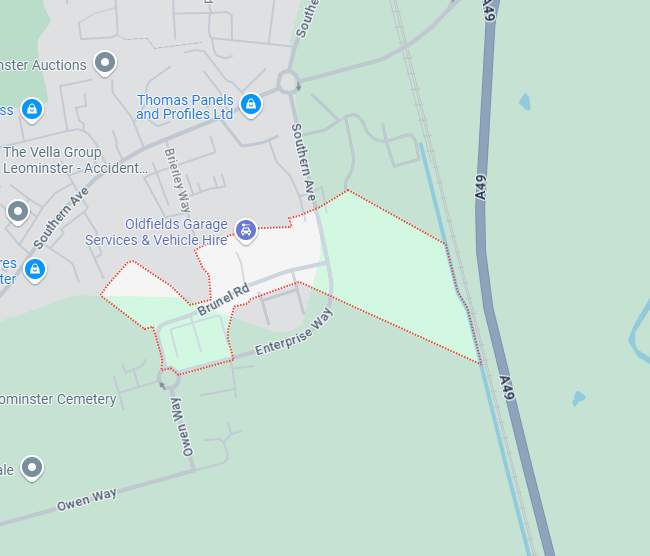🍏 Top Benefits of Eating Organic Food for Your Health
Long before chemicals and intensive farming practices took over, people relied on simpler, more natural ways to grow and raise food. Today, with so many synthetic ingredients added to our diets, the benefits of eating organic food have become more important than ever. Making the switch means aligning your choices with both your health goals and the planet’s wellbeing.
People grew and raised food using time-tested methods that worked with the land, not against it. Then came the post-war industrial boom. Suddenly, artificial fertilisers, pesticides, and genetically modified crops took over our food system. Despite these changes, our bodies haven’t evolved to process such interference. That’s where the real benefits of eating organic food come in.Organic Milk Benefits – Why Going Natural Makes a Difference
🌱 What Does Organic Actually Mean?
In the UK, certified organic food follows strict rules set by both the EU and the Soil Association. If you’ve spotted that green leaf logo on packaging, that’s your assurance.
Organic farming isn’t just about avoiding chemicals—it’s a thoughtful system designed to protect nature, improve animal welfare, and support healthier living.
Here’s what organic means in practice:
-
Fewer pesticides – Natural substances like neem oil or copper are permitted, but only when absolutely necessary and under strict guidelines.
-
No routine antibiotics – Organic livestock only receive antibiotics when absolutely essential, not as a daily safeguard.
-
No GMOs – Organic farms ban genetically modified seeds and actively prevent cross-contamination with modified crops.
-
Soil-first farming – Organic farmers keep soil healthy by rotating crops, planting cover crops, and feeding the ground with natural materials like compost and manure.
-
Better animal welfare – All organically raised animals have outdoor access and space to move naturally.
-
Limited use of additives – Organic food producers can only use a small, approved list of additives—free from artificial preservatives, colours, or sweeteners.
🧪 Two Key Benefits of Eating Organic Food
🧼 1. Fewer Chemicals in Your Body
One major advantage of organic eating is less exposure to harmful chemicals. The Pesticide Action Network UK found pesticide residues in most non-organic oranges, salad leaves, and even cereal bars.
Food industry representatives argue that small amounts of these chemicals are “safe.” However, scientists still don’t fully understand how different residues interact inside the body.
Take glyphosate, for instance—it’s the most commonly used herbicide worldwide, and researchers continue to investigate its potential role in cancer development.
Other research highlights the presence of heavy metals like cadmium in conventionally grown foods, raising concern due to their link with chronic health issues.
By choosing organic, you lower your exposure to these hidden toxins. That decision reduces your toxic load and supports better long-term health.
🥗 2. Higher-Quality Nutrients
Even though vitamin and mineral levels might not always differ drastically, there’s a lot more to nutritional quality than those basics.
Organic produce tends to contain more phytonutrients—such as flavonoids and anthocyanins—that protect against disease. These compounds strengthen when plants grow without synthetic pesticide protection.
These nutrients reduce inflammation, support immune function, and help prevent illnesses like cancer and cardiovascular disease.
Meat and dairy from organically fed animals often contain a healthier balance of fats, particularly omega-3s, along with increased levels of antioxidants.
That’s why the benefits of eating organic food aren’t just about avoiding nasties. You’re also choosing food that delivers more goodness. dark chocolate benefits may interest you.
⚖️ Is Organic Food Perfect? Not Quite—But It’s Still Worth It
Buying organic can sometimes be more expensive, and finding a good selection may take a little effort—especially if you live in a rural area or rely on large supermarkets.
Sceptics often point out that conventional farming is more affordable and currently feeds the majority of the global population.
Even if you can’t commit 100%, making small, intentional choices based on your health needs and values still counts for something.
Even switching a few everyday items to organic—like milk, eggs, or apples—can reduce your chemical intake and promote more sustainable farming. Milk thistle benefits for the liver.
💷 Budget-Friendly Tips for Organic Shopping
🛒 Shop Seasonally and Locally
Seasonal fruit and veg are usually cheaper and fresher. Farmers’ markets often have better deals on local, organic produce.
📊 Use the Dirty Dozen and Clean Fifteen
The Environmental Working Group ranks produce by pesticide levels. Prioritise organic options for the “Dirty Dozen,” and save money on the “Clean Fifteen.”
🍲 Stretch Organic Meat Further
To save money, use organic meat in dishes where vegetables and pulses take centre stage—think hearty stews, warming curries, or layered salads.
These tips help you enjoy the benefits of eating organic food—without blowing your budget.
🌍 Small Organic Swaps Can Have a Big Impact
Choosing organic food is about much more than a shopping list. It’s a commitment to better health, improved food quality, and a more balanced relationship with the environment.
You’re not just changing your diet—you’re helping reduce chemical use, improve soil health, and support ethical farming practices.
Even one change can spark a positive ripple. Try swapping a single item this week and pay attention to how you feel.
Final thoughts 🥦
We hope you found this article helpful as you explore the world of organic food.
Switching to organic doesn’t need to be daunting — even small steps can point you in a healthier direction. Whether it’s swapping your carrots, choosing organic herbs, or just becoming more label-aware, it’s all a step toward better health.
If you’re curious about natural living and real food alternatives, you might find these posts worth a look:
Thanks again for reading — here’s to better habits and a more natural way of living.





